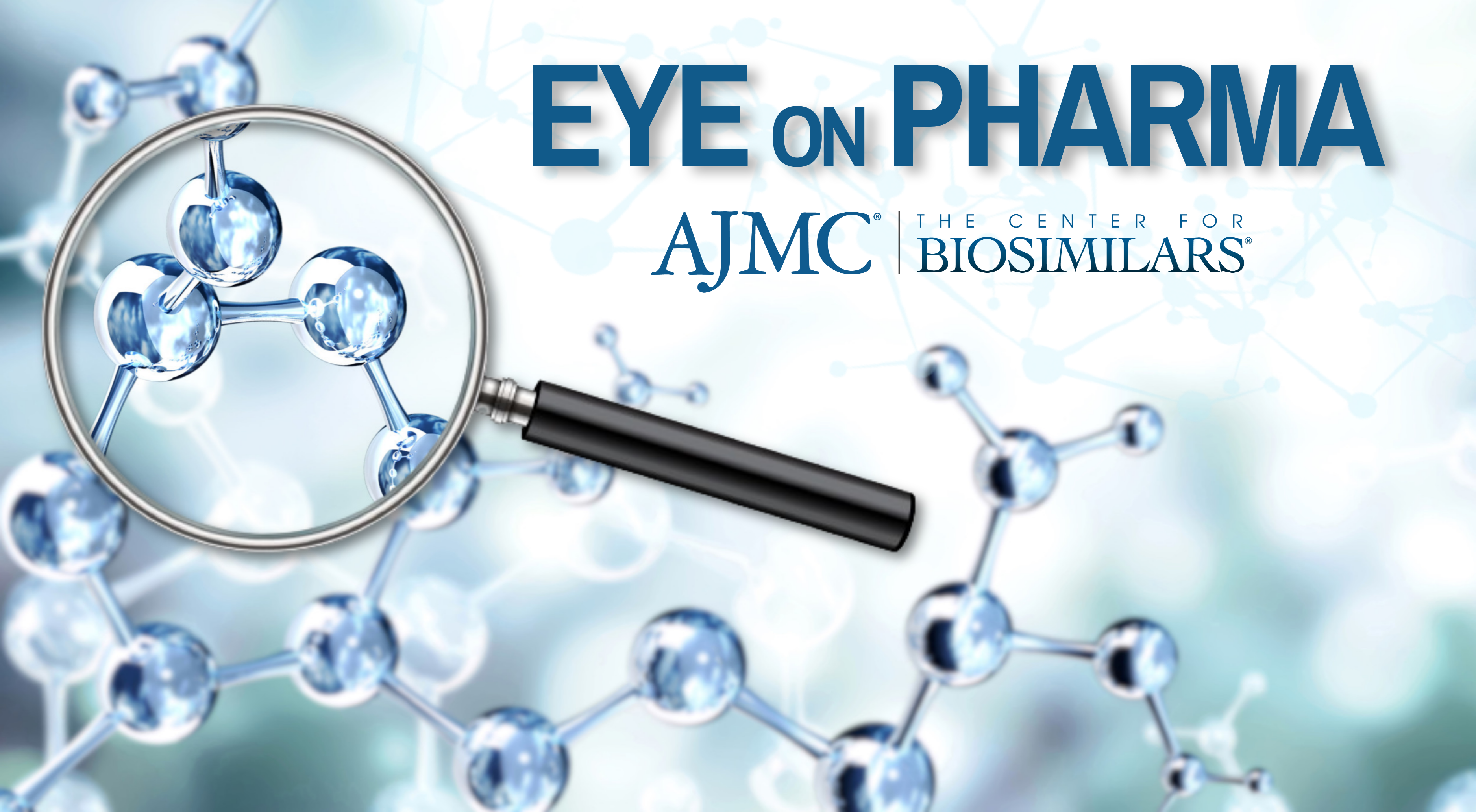- Bone Health
- Immunology
- Hematology
- Respiratory
- Dermatology
- Diabetes
- Gastroenterology
- Neurology
- Oncology
- Ophthalmology
- Rare Disease
- Rheumatology
Eye on Pharma: Henlius, Organon Updates; Meitheal Portfolio Expansion; Celltrion Zymfentra Data
Henlius and Organon’s pertuzumab biosimilar met phase 3 goals; Meitheal expanded its US biosimilars; Celltrion’s subcutaneous infliximab (Zymfentra) showed monotherapy could be as effective as combination therapy for inflammatory bowel disease.
Shanghai Henlius and Organon’s pertuzumab biosimilar met phase 3 trial goals, and the FDA accepted an application for their denosumab biosimilar; Meitheal Pharmaceuticals expanded its US biosimilars lineup; Celltrion USA’s analysis of Zymfentra (subcutaneous infliximab) showed comparable efficacy and safety between monotherapy and combination therapy for inflammatory bowel disease, supporting monotherapy as a viable option.

Shanghai Henlius Biotech and Organon Updates
Partners Shanghai Henlius Biotech and Organon announced that the phase 3 clinical trial for the investigational biosimilar HLX11, a pertuzumab biosimilar, met its primary end point.1
Henlius granted Organon global commercialization rights (excluding China) for HLX11 under a 2022 license and supply agreement. The trial (NCT05346224) compared HLX11 with Perjeta as a neoadjuvant therapy for HER2-positive, hormone receptro–negative early or locally advanced breast cancer, alongside trastuzumab and docetaxel.
Patients received treatment every 3 weeks for 4 cycles, and the primary end point—total pathological complete response rate—was achieved. Secondary end points, including safety and pharmacokinetics, are still being analyzed. Pertuzumab is already approved for use with trastuzumab and chemotherapy in various regions for treating advanced HER2-positive breast cancer.
Additionally, the companies announced that the FDA accepted the biologic license application for HLX14, a biosimilar to denosumab (Prolia/Xgeva), used to treat osteoporosis in postmenopausal women at high risk for fractures.2
Under the aforementioned 2022 agreement, Organon holds exclusive commercialization rights for HLX14 in the US, European Union (EU), and Canada. The application is supported by extensive studies: a phase 1 study in Chinese male subjects to establish pharmacokinetic similarities and a global phase 3 trial demonstrating HLX14's efficacy, safety, and immunogenicity compared to EU-sourced Prolia in postmenopausal women with osteoporosis.
Meitheal Signs Deal for US Biosimilars
Meitheal Pharmaceuticals has expanded its biosimilars portfolio through an exclusive licensing agreement with its parent company, Hong Kong King-Friend Industry.3 This agreement grants Meitheal the rights to market and distribute 3 biosimilars in the US: a pegfilgrastim, a filgrastim, and a follitropin alpha.
The first 2 are oncology medications for supporting white blood cell production during cancer treatment to prevent febrile neutropenia. Follitropin alpha, a recombinant form of human follicle-stimulating hormone (FSH), addresses a significant unmet need in the US fertility market, which saw $847 million in branded FSH sales in 2023. With no existing biosimilar alternatives for follitropin alpha, the product offers an affordable option for fertility patients.
Meitheal’s parent company has invested over $300 million to bolster product supply and research, including $30 million in a monoclonal antibody facility. With these additions, Meitheal’s biosimilars portfolio now totals 8 treatments.
Zymfentra Data Through 102 Weeks
Celltrion USA presented a post hoc analysis of the LIBERTY-CD and LIBERTY-UC studies for Zymfentra (infliximab-dyyb), the world’s first subcutaneous infliximab product, at the 2024 American College of Gastroenterology Annual Meeting.4
This analysis found comparable clinical outcomes for patients with inflammatory bowel disease (IBD) treated with Zymfentra as monotherapy versus combination therapy with immunosuppressants, indicating that monotherapy may be a viable option. Zymfentra, the only FDA-approved subcutaneous infliximab, had previously shown significant efficacy over placebo for maintenance in IBD.
The analysis included 429 patients with IBD and showed similar efficacy and safety profiles between monotherapy and combination therapy up to Week 102, though combination therapy generally resulted in higher mean infliximab levels.
Results showed that monotherapy achieved similar clinical outcomes to combination therapy at weeks 54 and 102, suggesting it could be an effective option without the added immunosuppressant. While combination therapy generally had higher infliximab trough levels after week 10, both approaches demonstrated comparable safety profiles, highlighting Zymfentra monotherapy as a potential choice for IBD patients aiming to minimize medication burden.
"The new data strengthens the case for Zymfentra monotherapy as a potential treatment option for patients with Crohn's disease and ulcerative colitis," said Hetal Patel, PharmD MBA, head of medical affairs at Celltrion USA. “These findings suggest that Zymfentra could offer flexibility in treatment approaches, providing confidence in monotherapy as an alternative to combination therapy, while maintaining effective disease control."
References
1. Primary endpoint met in phase 3 comparative clinical study of Perjeta (pertuzumab) biosimilar candidate HLX11. Organon. News release; September 30, 2024. Accessed November 4, 2024. https://www.organon.com/news/primary-endpoint-met-in-phase-3-comparative-clinical-study-of-perjeta-pertuzumab-biosimilar-candidate-hlx11/
2. US fda accepts biologics license application (BLA) for HLX14, biosimilar candidate of Prolia/Xgeva (denosumab). Organon. News release; October 30, 2024. Accessed November 4, 2024. https://www.organon.com/news/us-fda-accepts-biologics-license-application-bla-for-hlx14-biosimilar-candidate-of-prolia-xgeva-denosumab/
3. Meitheal Pharmaceuticals secures exclusive commercial licensing agreement for three biosimilars in the U.S. Meitheal Pharmaceuticals. News release; October 31, 2024. Accessed November 4, 2024. https://www.meithealpharma.com/news/90
4. Celltrion presents post hoc analysis of LIBERTY studies of Zymfentra (infliximab-dyyb) at the American College of Gastroenterology 2024 Annual Scientific Meeting. Celltrion USA. News release; October 30, 2024. Accessed November 4, 2024. https://en.prnasia.com/releases/global/celltrion-presents-post-hoc-analysis-of-liberty-studies-of-zymfentra-infliximab-dyyb-at-the-american-college-of-gastroenterology-2024-annual-scientific-meeting-466440.shtml
Newsletter
Where clinical, regulatory, and economic perspectives converge—sign up for Center for Biosimilars® emails to get expert insights on emerging treatment paradigms, biosimilar policy, and real-world outcomes that shape patient care.
